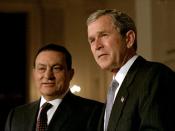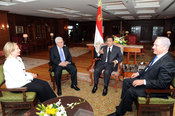I. Introduction In examining the rules which are supposed to guide the behavior of journalists, we find that they are very comprehensive and do take into account the specific characteristics of the mass media environment. That is, they address all possible unethical behavior which journalists can possibly practice. The ?Code of Ethics? published by the Society of Professional Journalists, covers thirty-seven points under four main headings: a. ?Seek Truth and Report It? b. ?Minimize Harm? c. ?Act Independently? d. ?Be Accountable? The points covered under these headings range from the responsibility of journalists to carefully choose their language so as not to mislead the public, or sensationalize an issue, to responsibility towards the person, or event, you are reporting on. That is, media ethics demand that journalists do not accuse people without solid evidence, and ?show compassion for those who may be affected adversely by news coverage.? In total, media ethics are comprehensively defined, and supposedly guarded by a journalist?s own sense of integrity, and respect for the truth and objectivity.
Additionally, the ethical code explicitly states that journalists who do not respect the ethics of their profession should be punished. That is, ?journalists are accountable? to the public, and are responsible for every word they write.
In setting down ethical guidelines for journalists, this is supposedly to ensure that the media carries out its duty of 'informing? the public of issues without actually making up their minds for them. That is, to inform correctly and honestly, in such a way that readers will gain an accurate understanding of their world and societies. The point is that the media is the most influential instrument in transmitting culture and understanding. It is through the media that we gain a sense of cultural identity and view ourselves as members of a...


